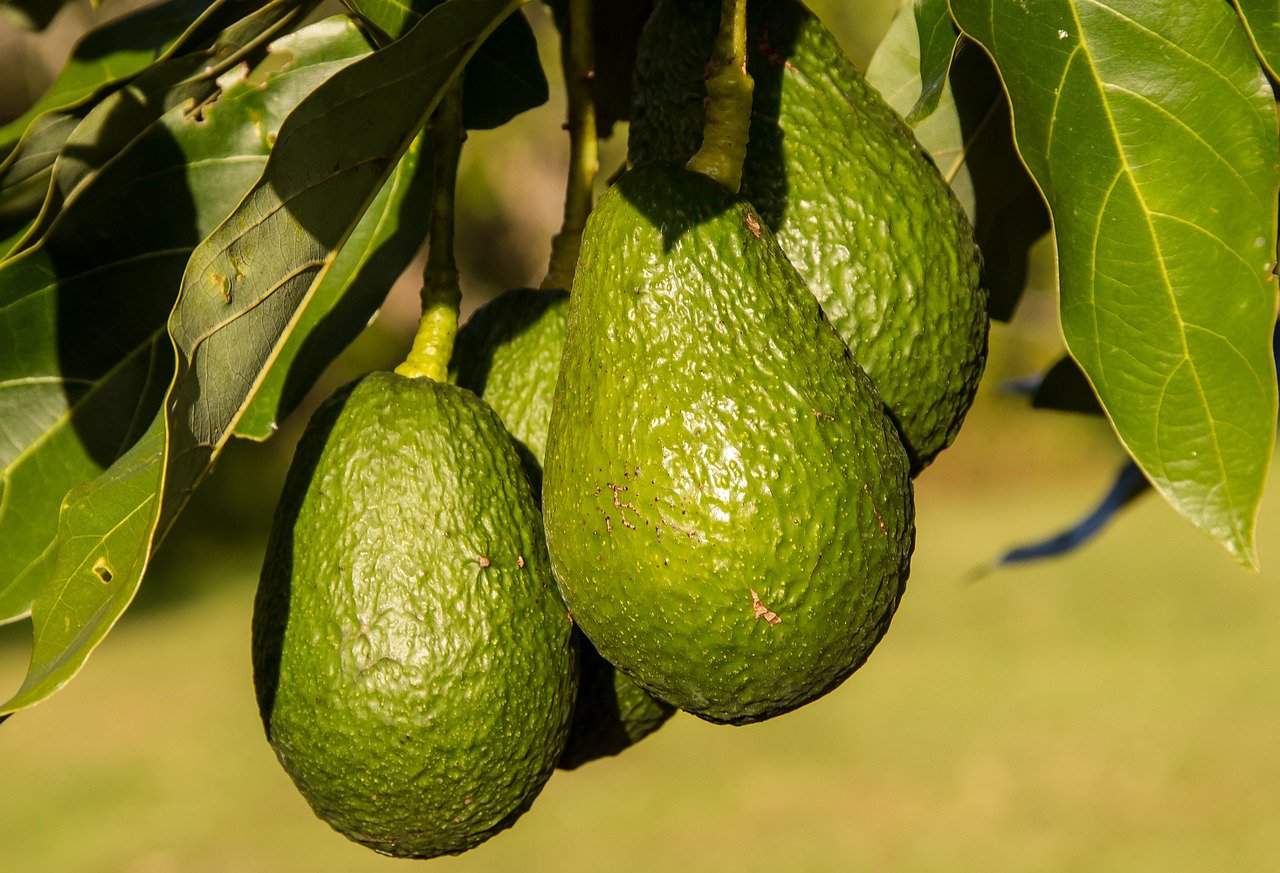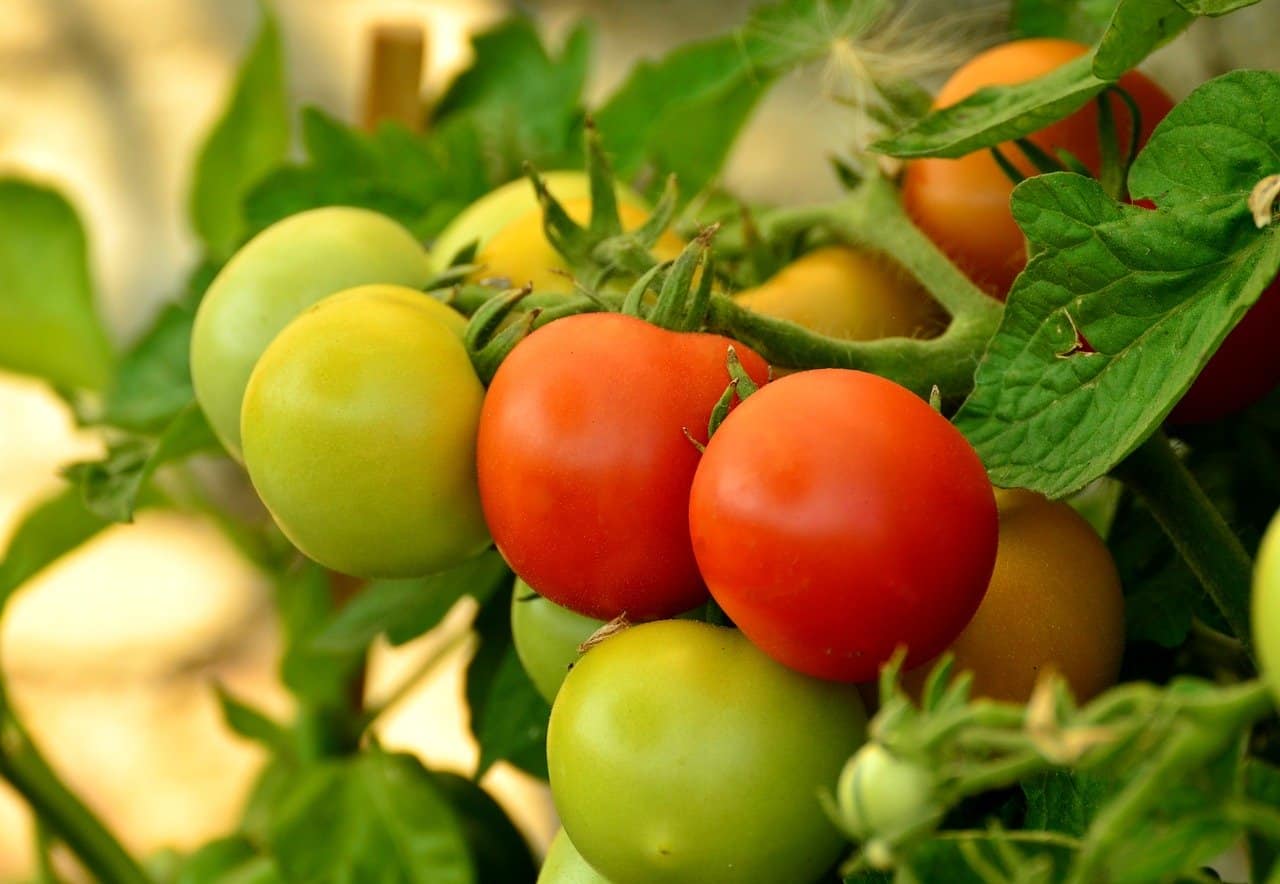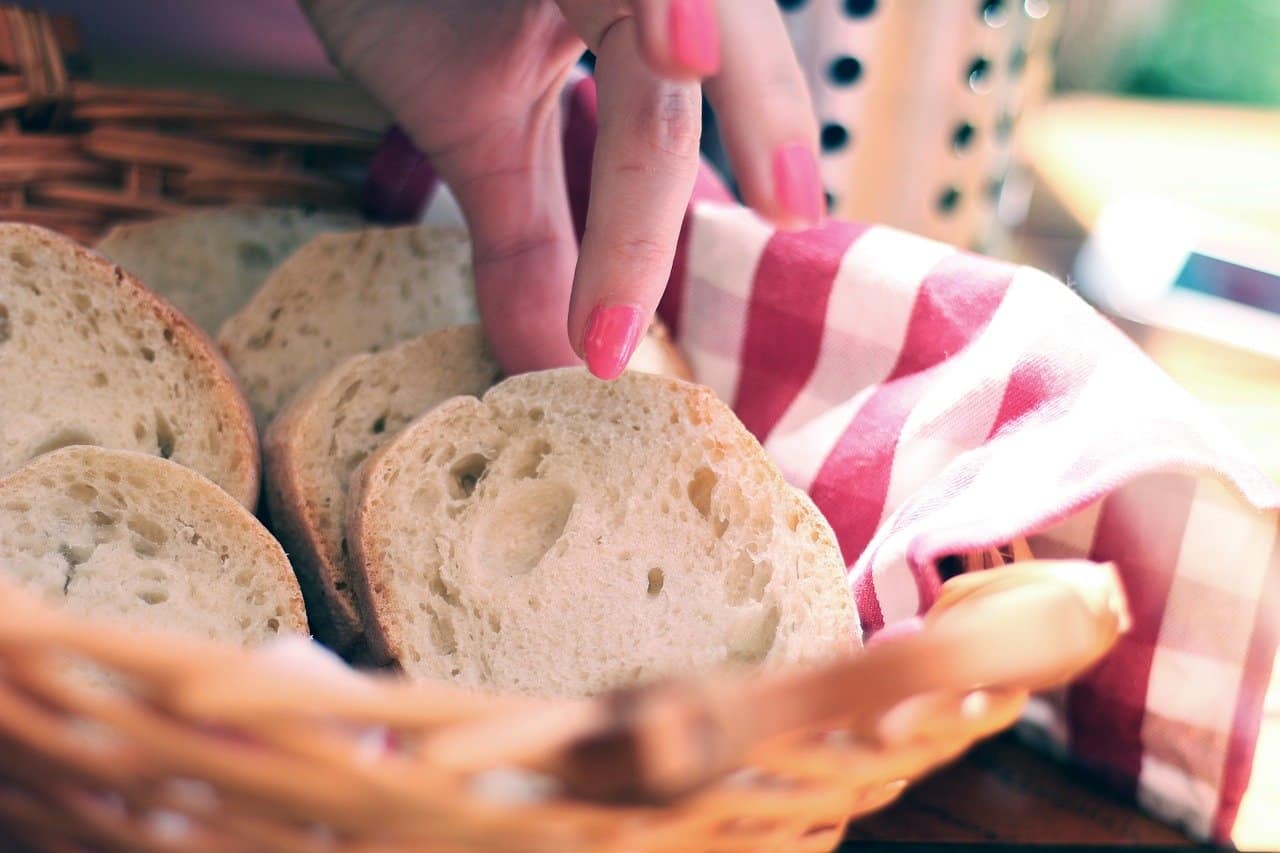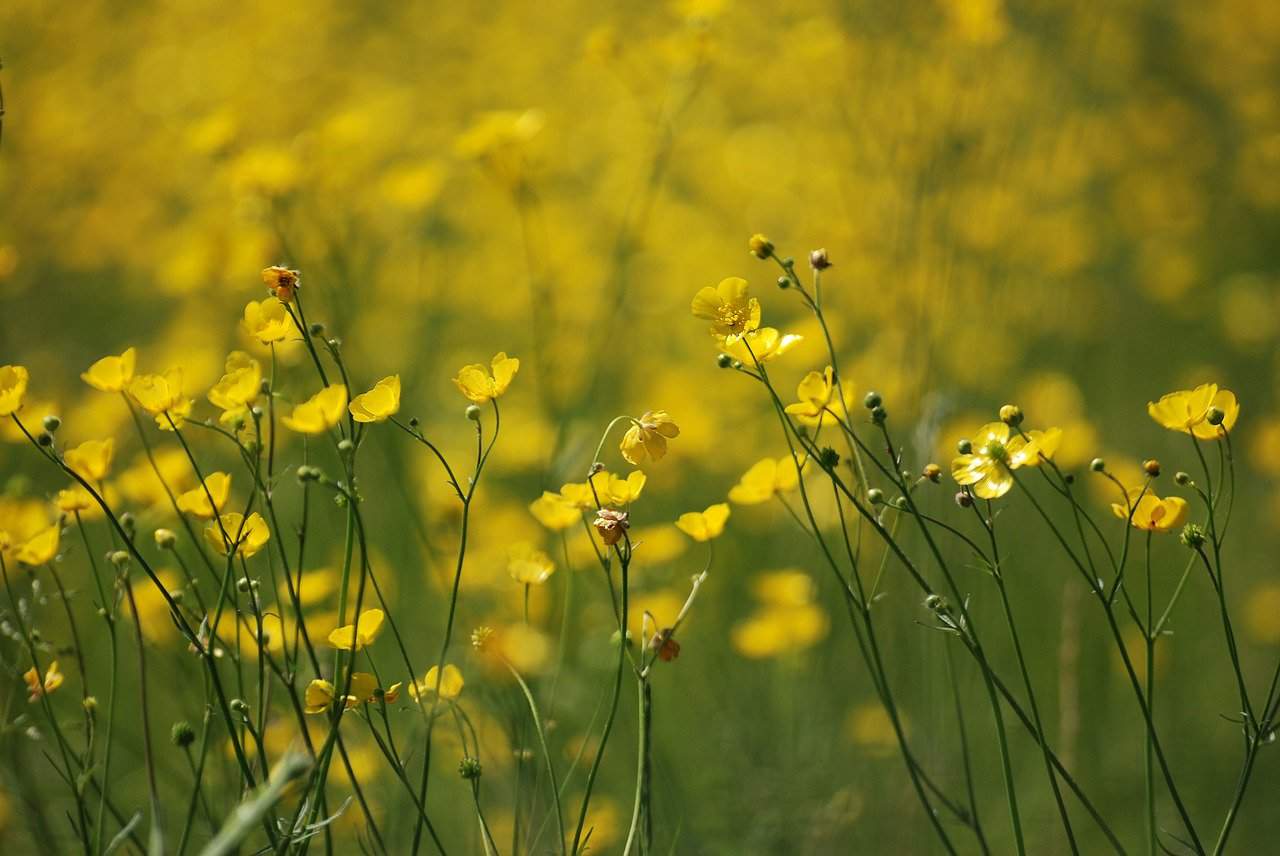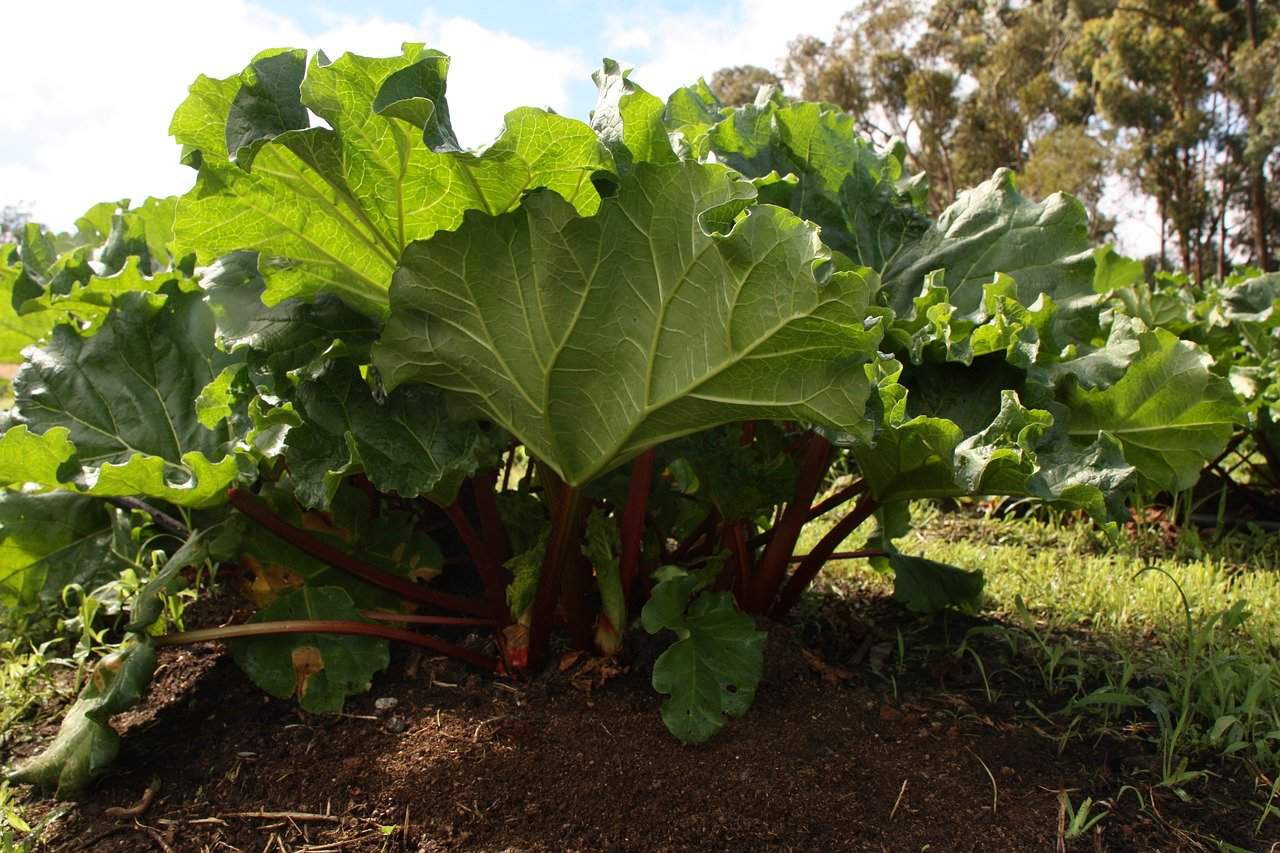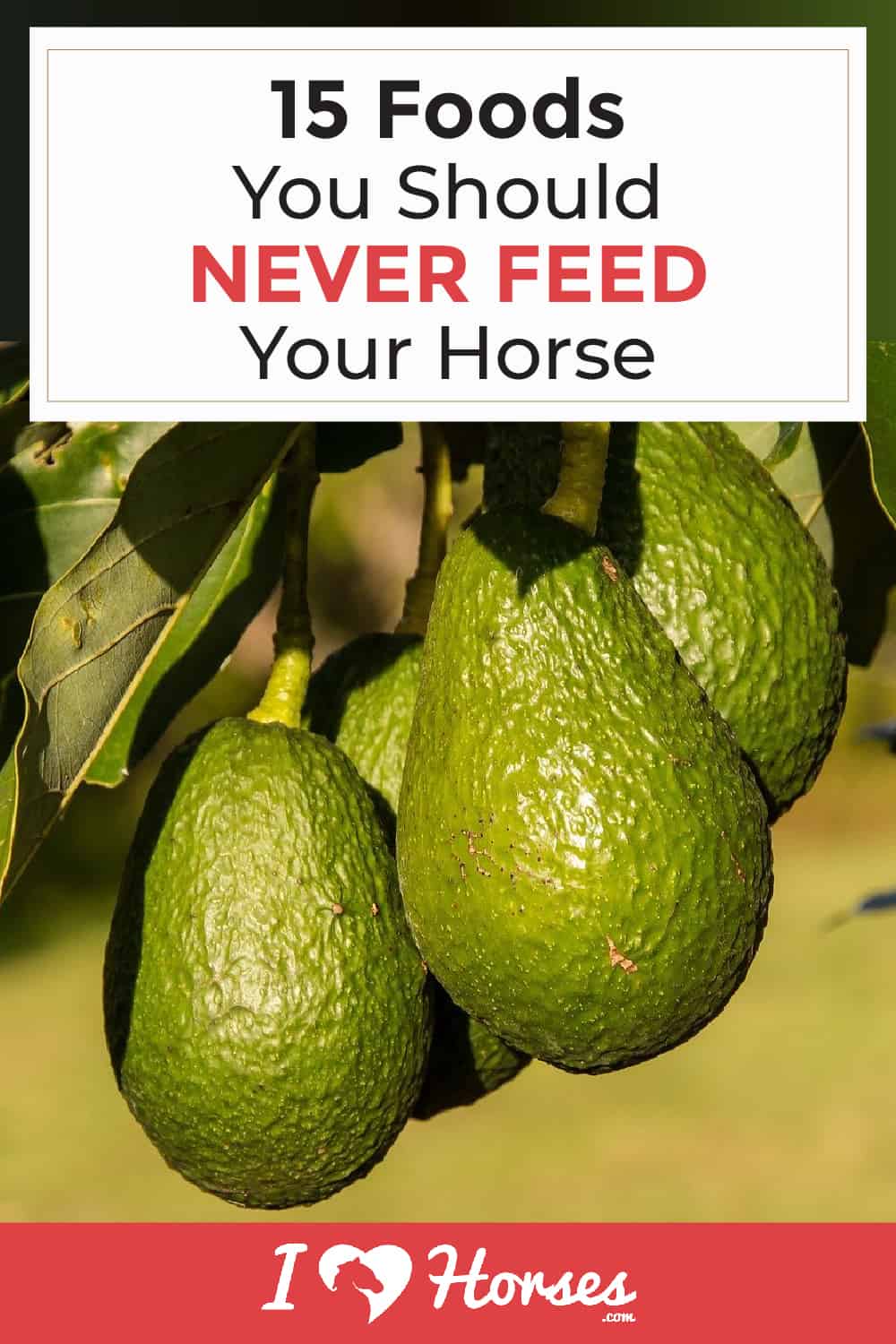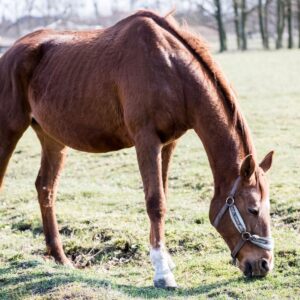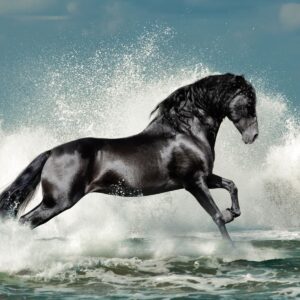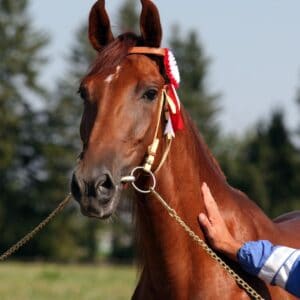While we all know a healthy diet is essential to a horse's well-being, there's nothing wrong with spoiling them with a special treat every now and then. Apples, sugar cubes, and peppermints are go-to horse favorites, and there's a relatively long list of other human foods you can safely share with your equine best friend (read that list here). But at the same time, it's important to realize that not all foods are safe for horses.
There are certain plants, fruits, and other types of food that are toxic to horses and can cause serious health issues. Feed your horse the wrong thing, and you could end up causing colic, loss of muscle control, respiratory distress, diarrhea, and several other life-threatening problems.
Every horse owner should memorize this list of foods you should never feed to a horse.
1. Avocado
This fatty fruit is great on toast and even on pizza, but it's not so great at the barn. Avocados contain a type of fatty acid called persin that is toxic to horses and other animals. Even small amounts can cause symptoms including irregular heartbeat, respiratory distress, colic, and edema. In severe cases, animals can die.
All parts of the avocado, including the fruit, leaves, and even the bark of an avocado tree are toxic to horses. Never allow horses to graze in areas where avocados grow, and never feed your horse a bite of your avocado sandwich.
2. Potatoes
As members of the nightshade family, potatoes are toxic to horses. Raw potatoes are more dangerous than cooked potatoes, but potato poisoning is possible will all types of this starchy vegetable. A small bite or two most likely won't have any effects on an adult horse, but regularly munching on potatoes can cause serious gastrointestinal distress.
Thankfully, horses generally avoid potatoes due to an off-putting taste. But with so many delicious forms of potato, that isn't always the case. French fries, chips, gnocchi, and other potato-based foods are all dangerous to horses.
3. Tomatoes
Like potatoes, tomatoes are another member of the dangerous nightshade family. They're related to horse nettle, which we all know is not good for horses.
Symptoms of eating too much tomato include colic and diarrhea. Horses usually avoid eating tomatoes and the plants themselves, but it's still important to be vigilant. Don't let horses near the garden, and keep your tomato sandwich away from their curious muzzles.
4. Unpitted Fruits
Most of the fruits you find in the produce section or roadside stand are perfectly fine for your horse to eat, but you have to remove the pits. Pitted fruits including peaches and plums have hard seeds in the middle that are potential choking hazards.
Some of those seeds also contain dangerous toxins. Your safest option is always to remove the pit before you feed your horse a tasty fruit.
5. Cheese and Yogurt
Some supplemental horse feeds include dehydrated skim milk, dried whey, or cheese rind, but in general, dairy products are not safe for horses. Consuming large amounts of lactose can lead to serious digestive upset.
Horses don't have the proper digestive enzymes for lactose absorption. Dairy products including milk, cheese, yogurt, and ice cream should always be avoided.
6. Bread
There are some horse people that claim bread is a way to help a horse gain weight, but the risks far outweigh any potential benefits. As a starch, bread is hard for horses to digest. It can create blockages that eventually lead to colic.
According to Veterinary Partner, bread is especially dangerous to horses with equine metabolic syndrome or insulin resistance. It can cause laminitis and founder.
7. Chocolate
Just like dogs, horses should never eat chocolate. It can be be fatal in large doses, and even small amounts can cause uncomfortable health issues.
It's the chemical called theobromine that's responsible for all the trouble caused by chocolate. Like caffeine, chocolate can lead to increased heart rate, restlessness, muscle tremors, and diarrhea. If you feed your horse chocolate before a competition, there's a good chance they'll be disqualified, because it shows up on drug tests.
8. Cattle Feed
It's not uncommon for horse owners to also have cattle, but it's important to remember that they're completely different animals. Horses and cattle have different digestive systems and have different nutrition needs.
Some of the ingredients in cattle feed are toxic to horses. In some cases, it can even be fatal. Always keep your cattle and horses separate during feeding times.
9. Buttercups
Buttercups show up in pastures, and we tend to ignore them. But horses know they're not good for eating. Horses usually graze around the pretty yellow flowers with inherent knowledge that they can irritate their mouths and cause stomach upset as well as colic.
Sometimes buttercups end up in hay, and in this dried form, they're harmless. Knowing the potential risk, however, will come in handy when well-intentioned children try offering up buttercups to your curious horse.
10. Lawn Clippings
Grass makes up the majority of a healthy horse's diet, but there's a big difference between grazing in a pasture and chowing down on lawn cuttings. As soon as the grass is cut, it starts to ferment. So when a horse swallows, the clippings continue to ferment and expand in the stomach. This can lead to colic and stomach rupture.
Horses should only eat fresh grass and hay. It still ferments, but the process doesn't start until the meal is safely through the stomach.
11. Meat
Horses are herbivores, which means their bodies are specifically designed to digest and absorb plants. They're simply not equipped to process meat, and eating it can cause serious nutrition issues.
While meat isn't part of a horse's regular diet, that doesn't always stop them from taking bites. Some horses seem to enjoy the taste of meat and might steal a hot dog right out of their owner's hand. They don't know that they'll regret the decision later, so it's your job to stay vigilant.
12. Rhubarb
If you grow rhubarb in your garden, remember that the vegetable is not safe for horses, not to mention a lot of other animals. The bitter-tasting leaves contain a high level of calcium oxalates that are bad for the digestive system and can sometimes lead to severe kidney damage, kidney failure, and death.
Rhubarb stems aren't as dangerous, but it's best to avoid this plant altogether. If you feed your horse rhubarb, be prepared for a vet visit.
13. Milkweed
Milkweed loves to take root on the edges of fields, in ditches, and along fence lines. It's usually not fatal for horses, but milkweed poisoning can cause muscle paralysis.
Identified by a cluster of fragrant flowers, milkweed's unpalatable taste is usually enough to keep horses from taking bites. But if they're left to graze in a low quality pasture, hunger pangs can convince them to ignore the bad taste. It's good reason to ensure your pastures are always in good shape.
14. Horsetail
Despite its name, horsetail is no friend to equines. Considered a weed, this plant is toxic both when it's fresh and dried. It affects the vitamin B in a horse's blood and causes issues including muscle weakness and irregular heartbeat.
Horse Courses by Elaine Heney
- Listening to the Horse - The Documentary by Elaine Heney & Grey Pony Films
- Shoulder In & Out Training for better balance, bend & topline development with your horse
- Over 110+ Polework Exercises & Challenges to Download
- Dancing at Liberty & Creating Connection with Your Horse (11 lessons) - Grey Pony Films
Horsetail usually grows in watery areas next to streams, rivers, and marshes.
15. Dog and Cat Food
You hopefully don't feed your horse dog or cat food on purpose, but it's not uncommon for a curious and hungry horse to nose their way into the barn cat's food bowl. A lot of dry kibble contains grain products, and can even look similar to horse feed, so you can't exactly blame the horse.
A few bites probably won't hurt your horse, but you don't want to make it part of their regular diet. Pet foods contain meat, which has no place in equine nutrition. Be sure to keep your dog and cat food well out of your horse's reach.

